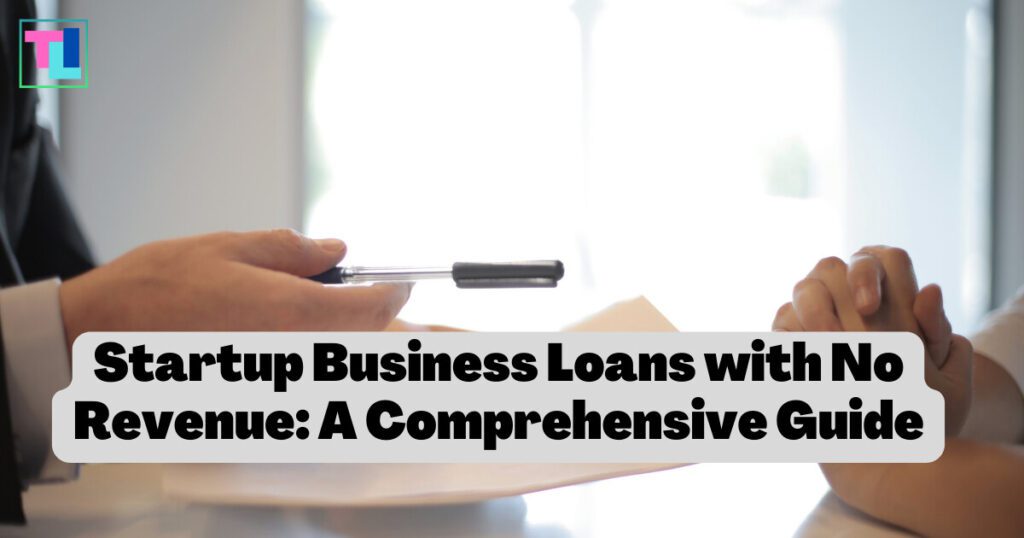
Startup Business Loans with No Revenue: A Comprehensive Guide – Starting a company is an exciting activity, but it can also be difficult, particularly when it comes to obtaining money.
Traditional lenders, such as banks, often demand that firms have a consistent source of income to qualify for a loan. This criterion might be tough for businesses that are just getting started.
There are, nevertheless, opportunities for startup business loans with no revenue. In this post, we will look at these possibilities and their advantages and disadvantages.
Startup Business Loans with No Revenue 2023
Let’s get started with the details, continue reading to learn more…
What are no-revenue startup business loans?
Page Contents
- 1 What are no-revenue startup business loans?
- 2 Types of startup business loans with no money
- 3 Microloans
- 4 Business Credit Cards
- 5 Crowdfunding
- 6 Personal Loans
- 7 Loans from friends and family
- 8 The Benefits and Disadvantages of Startup Business Loans with No Revenue
- 9 How to get a startup a business loan with no money
- 10 Conclusion
- 11 Frequently Asked Questions (FAQs)
Startup business loans with no revenue are loans developed primarily for enterprises that are just getting started and do not yet have a continuous source of revenue.
These loans are often unsecured, which implies that no collateral is required.
Instead, lenders look at the borrower’s creditworthiness and other variables to determine whether they are a suitable fit for the loan.
Startup company loans with no income may be utilized for several objectives, including the purchase of equipment, merchandise, office space, personnel recruiting, and marketing.

Types of startup business loans with no money
There are various sorts of business loans available for those with no income. These are a few popular examples:
Microloans
Microloans are tiny loans that generally range between $500 and $50,000. Nonprofit groups, community development financing institutions (CDFIs), and the Small Business Administration (SBA) often supply themes (CDFIs), or the Small Business Administration (SBA) often supply them.
Microloans are an excellent alternative for companies with little or no credit history or negative credit since they are meant to assist small enterprises in building credit.
Microloans, however, sometimes have high-interest rates and short payback periods.
Read More>> How to start a storage business: Your Complete Guide (2023)
Business Credit Cards
Business credit cards are revolving lines of credit that may be used to fund initial expenditures. Because they do not need collateral, they are often easier to get than regular loans.
Business credit cards may also have rewards programs, such as cashback or travel points, that may help offset the cost of purchases. Business credit cards, on the other hand, can have high-interest rates, and holding a balance may rapidly lead to debt.
Crowdfunding
Crowdfunding is a way of generating money that involves asking for modest contributions from a large number of individuals.
Crowdfunding sites like Kickstarter and Indiegogo enable entrepreneurs to present their company concept to a worldwide audience and get cash in return for prizes or ownership.
Crowdfunding may be a great choice for businesses with a great business concept or a large social media following. However, standing out in a crowded market may be difficult, and not all efforts are effective.
Personal Loans
Personal loans are unsecured loans that may be used for several reasons, including startup finance. Because they do not need collateral, they are often easier to get than regular loans.
Personal loans have set interest rates and payback periods, which may help with budgeting. Personal loans, on the other hand, might have high-interest rates, particularly for applicants with weak credit.
Read More>>
- How To Turn Off Business Account On Instagram: 5 Easy Steps (2023)
- How to start a storage business: Your Complete Guide (2023)
Loans from friends and family
Friends and family loans are loans made by individuals you know, such as family members or friends. These loans often have advantageous conditions, such as low or no interest rates and flexible payback schedules.
Friends and family loans may be a great choice for companies with a strong support network, but they might strain relationships if the borrower is unable to return the loan.
The Benefits and Disadvantages of Startup Business Loans with No Revenue
Startup company loans with no income, like any other kind of finance, have perks and downsides. Consider the following pros and cons:
Pros:
Access to Finance: Startup business loans with no income allow new enterprises to access funding that would otherwise be unavailable.
Simpler to Apply: Because they do not demand collateral and may have more relaxed credit standards, startup business loans with no income are frequently easier to qualify for than conventional loans.
Many beginning business loans with minimal income provide flexible repayment terms, such as extended payback durations or interest-only payments, which may help firms manage their cash flow.
Can Help Develop Credit: Startup business loans with little income can help firms build credit, making future funding more accessible.
Cons:
Higher Interest Rates: Startup business loans with little income often have higher interest rates than regular loans, increasing the entire cost of funding.
Short Payback Periods: Because certain beginning business loans with little income, such as microloans, have short repayment terms, it might be difficult for enterprises to repay the loan on time.
Limited Funding: Initial business loans with no income may have smaller loan amounts than standard loans, which may not be adequate to pay all of the startup expenditures of a firm.
Some beginning business loans with no income, such as personal loans or loans from friends and family, may be problematic since they might damage personal ties if the borrower is unable to return the debt.
Read More>> BitLife Business Update Guide: You Need To Know About Business Update (2023)

How to get a startup a business loan with no money
If you are a business seeking capital, here are some pointers to help you receive a startup business loan with no revenue:
- Create a solid business plan: A well-developed business plan will assist you in convincing lenders that your business is a viable investment.
- Develop Your Credit: Even if you don’t have any income, you may still build credit by paying your bills on time and keeping your credit usage ratio low.
- Consider Providing Security: While many beginning company loans with no income are unsecured, providing collateral might help you receive a bigger loan or a cheaper interest rate.
- Investigate Non-Traditional Financing Choices: Aside from the options described in this article, several more non-traditional finance options are are several more non-traditional finance options available, such as revenue-based financing or equipment leasing.
- Networking and presenting your business concept might help you get cash from investors or possible business partners.
Conclusion
Starting a firm without any income might be difficult, but it is not impossible. Businesses may acquire the money they need to get off the ground by investigating startup business loans with no income.
Financing alternatives for every business are accessible, including microloans, business credit cards, crowdsourcing, personal loans, and loans from friends and family.
Businesses may make an educated choice about which financing option is best for them by weighing the advantages and drawbacks of each option.
With the appropriate finances and a solid business strategy, every business can prosper. Don’t forget to leave a comment and share the article “Startup Business Loans with No Revenue: A Comprehensive Guide” because it may be helpful for others.
Frequently Asked Questions (FAQs)
What are no-revenue startup business loans?
Startup business loans with no income are funding solutions for new firms that have not yet earned any revenue. These loans may or may not need collateral and may have less stringent credit standards than regular loans.
What are the options for startup business loans with no revenue?
Microloans, business credit cards, crowdsourcing, personal loans, and loans from friends and family are some choices for starting a business with little income. Each option has advantages and disadvantages, so firms must analyze their merits before selecting a financing solution.
What are the pros and cons of startup business loans with no revenue?
Easy qualifying, flexible payback periods, and the potential to develop credit are some of the benefits of beginning company loans with no income. Higher interest rates, short payback periods, restricted financing, and significant risk are some of the disadvantages.
How can I qualify for a startup business loan with no revenue?
Businesses should construct a good business plan, strengthen their credit, consider supplying collateral, investigate non-traditional funding methods, network, and present their concept to qualify for a starting company loan with no income.
R Amin founded Try Latest Info, a website that provides readers with the latest information on business news, trends, and developments. He shares his insights and expertise through his social media handles and website. To learn more about R Amin or to connect with him on social media, please visit his website at https://trylatestinfo.com/.
